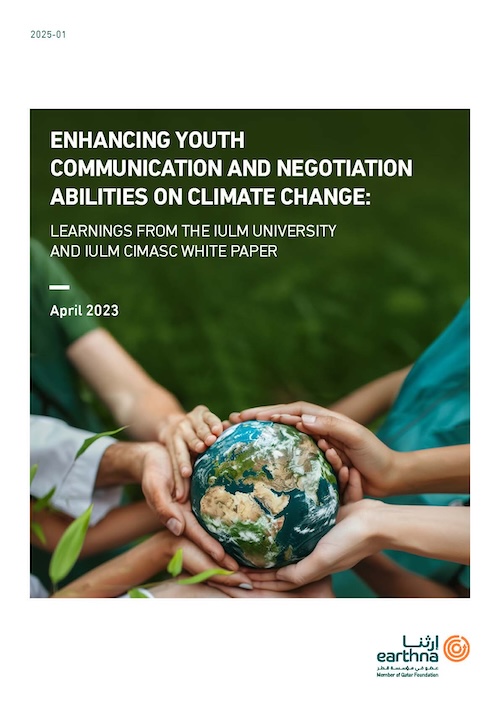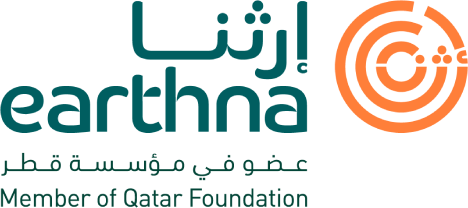
This policy insight, developed by Earthna Center for a Sustainable Future in collaboration with the Free University of Languages and Communication, explores how young climate activists can be better supported to engage meaningfully in climate dialogues and negotiations.
Young people have become a driving force for climate action, demanding accountability and participating in global policy discussions. Yet, many face obstacles that limit their effective involvement, including gaps in communication skills, lack of negotiation training, and limited access to resources and mentorship. The report highlights that while 79% of surveyed youth identify as environmental activists, less than half believe their contributions influence policy outcomes.
Drawing on interviews, surveys, and online monitoring, the research identifies five key areas: negotiation with policymakers, peer-to-peer communication, quality of interactions, technological enablers, and contextual enablers. Findings show that youth often rely on factual, logical approaches in negotiations, but more effective outcomes arise when emotional intelligence, cultural awareness, and collaborative framing are applied. Similarly, while many youth emphasize precision in messaging, expressive and informal communication styles tend to resonate more strongly with peers and wider audiences.
Technology and social media are powerful tools for amplifying youth voices, though rising online hostility underscores the need for conflict-management strategies. Contextual factors, such as creating inclusive spaces and bridging intergenerational divides, are also vital to empowering young leaders.
The study offers practical recommendations: targeted training in negotiation and communication, mentorship and leadership programs, integration of climate communication into education, and expanded digital platforms for collaboration. Earthna is committed to advancing these priorities by supporting specialized training, fostering partnerships, and encouraging youth participation in major forums such as Qatar’s National Dialogue on Climate Change and COP meetings.
By bridging skills gaps and enabling constructive engagement, this work affirms that empowering youth is essential to shaping effective, inclusive, and sustainable climate policies.
